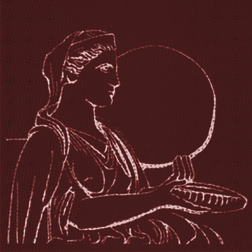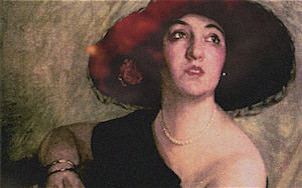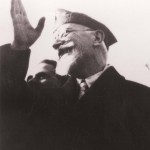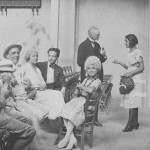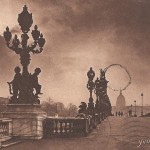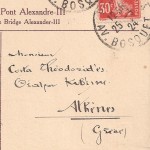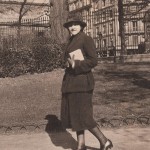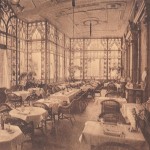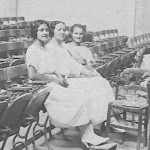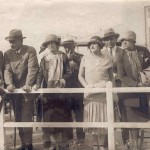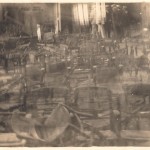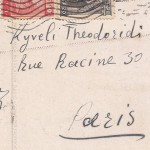The 1920s saw political divisions permeating the whole of Greek society. Passions ran high and Kyveli was characterised, in people’s minds, by her identification with the Liberals.
The two leading ladies, devoted supporters of opposite political sides (Kotopouli, a fervent royalist, and Kyveli, a Venizelist-liberal), followed the fortunes of King George I of Greece and Eleftherios Venizelos while suffering the consequences of their choices in a disorderly political situation which often affected the operation of their theatres in extreme ways.
Kyveli, being a fervent supporter of Venizelos, would be persecuted for her views during the events of November 1917 (Noemvriana, 1917). She was arrested and taken to the provost marshal’s office while the monarchists forbade her from acting and removed her name from the theatre’s ledge. Shortly after, Kyveli left Greece and travelled, initially staying in Paris where her children were studying. Her son Alexandros (Alekos) the architect, had initially studied agronomy following Venizelos’ incitement. “What should I do with my child?” Kyveli had asked. Venizelos had replied that “The land needs agronomists”. Aliki was studying at the Conservatoire.
Eleftherios Venizelos and Kyveli did not meet until after the Noemvriana. In 1921, while in self-imposed exile in Paris, she systematically frequented the Democratic leader. Eleftherios Venizelos had lost the elections and the militaries had shut her theatre down. Their mutual admiration gave rise to intense rumours about yet another romance being woven around Kyveli. She neither denied nor confirmed anything thus conserving and even intensifying the myth surrounding her person. When asked whether she could imagine Venizelos having feelings for her she replied: “But how is it possible for me to think that Our Lord Jesus Christ would fall in love with me?”.
